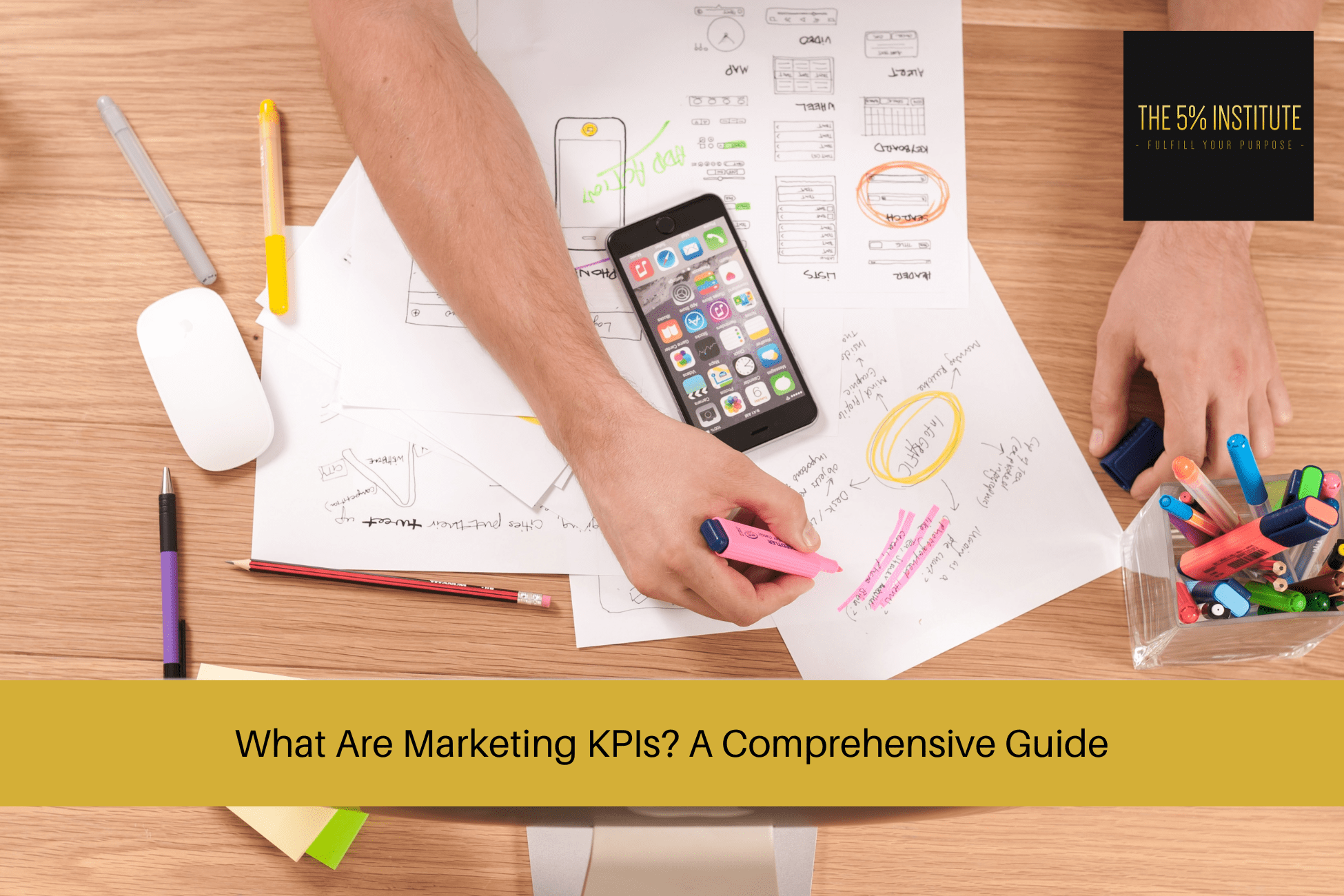
What Are Marketing KPIs? A Comprehensive Guide
Marketing Key Performance Indicators (KPIs) are essential metrics that help businesses measure the success of their marketing campaigns and activities.
These metrics provide valuable insights into the performance, effectiveness, and overall impact of marketing efforts.
In this article, we will explore what marketing KPIs are, why they are important, and how businesses can leverage them to drive growth and achieve their marketing goals.
Understanding Marketing KPIs
Marketing KPIs are quantifiable metrics used to evaluate the performance and effectiveness of marketing initiatives.
They provide insights into how well marketing strategies are driving desired outcomes and can range from financial metrics to customer engagement indicators.
By measuring and analysing these KPIs, businesses can make data-driven decisions, optimize their marketing efforts, and improve overall performance.
Importance of Marketing KPIs
Marketing KPIs play a crucial role in guiding marketing strategies and assessing their impact.
Here are a few reasons why marketing KPIs are important:
Performance Evaluation: KPIs enable businesses to assess the success of their marketing campaigns and initiatives.
They help identify areas of improvement and evaluate the effectiveness of different marketing channels.
Goal Alignment: KPIs ensure that marketing activities align with overall business objectives.
By setting specific KPIs, businesses can focus their efforts on achieving desired outcomes and measure progress towards those goals.
Decision Making: Marketing KPIs provide valuable data that supports decision-making processes.
They help marketers identify trends, understand customer behavior, and make informed choices to optimize marketing strategies.
Resource Allocation: KPIs help businesses allocate resources effectively by identifying high-performing marketing channels and tactics.
This ensures that marketing budgets are allocated to initiatives that yield the best results.
ROI Measurement: Marketing KPIs enable businesses to measure the return on investment (ROI) for their marketing activities.
By tracking and analyzing KPIs, businesses can determine the cost-effectiveness and profitability of their marketing campaigns.
Types of Marketing KPIs
Marketing KPIs can vary depending on the goals and objectives of a business.
Here are some common types of marketing KPIs:
1. Financial KPIs
Financial KPIs focus on measuring the financial impact of marketing efforts.
Examples include revenue growth, return on investment (ROI), customer lifetime value (CLV), and cost per acquisition (CPA).
2. Customer Acquisition KPIs
Customer acquisition KPIs assess the effectiveness of marketing campaigns in acquiring new customers.
Metrics such as lead-to-customer conversion rate, cost per lead, and customer acquisition cost (CAC) fall under this category.
3. Engagement and Retention KPIs
Engagement and retention KPIs measure how well marketing initiatives engage and retain customers.
Metrics like customer retention rate, email open rates, social media engagement, and time spent on website are essential in evaluating customer engagement and loyalty.
4. Conversion KPIs
Conversion KPIs track the effectiveness of marketing efforts in converting leads into customers.
Metrics such as conversion rate, click-through rate (CTR), and landing page conversion rate fall under this category.
5. Brand Awareness KPIs
Brand awareness KPIs evaluate the visibility and recognition of a brand among the target audience.
Metrics like brand mentions, social media reach, search engine rankings, and website traffic contribute to measuring brand awareness.
6. Social Media KPIs
Social media KPIs focus on assessing the impact and performance of social media marketing efforts.
Metrics such as followers, engagement rate, post reach, and social media conversions help measure the effectiveness of social media campaigns.
7. Website Performance KPIs
Website performance KPIs analyse the effectiveness of a website in attracting and engaging visitors.
Metrics such as bounce rate, average session duration, page views, and conversion rate provide insights into website performance and user experience.
8. Email Marketing KPIs
Email marketing KPIs measure the success of email campaigns and strategies.
Metrics like open rate, click-through rate, conversion rate, and unsubscribe rate help assess the effectiveness of email marketing initiatives.
9. Content Marketing KPIs
Content marketing KPIs evaluate the performance and impact of content marketing efforts.
Metrics such as content engagement, organic traffic, time on page, and social shares contribute to measuring the success of content marketing strategies.
10. Lead Generation KPIs
Lead generation KPIs focus on measuring the effectiveness of marketing activities in generating leads.
Metrics such as lead quality, lead conversion rate, lead-to-opportunity ratio, and lead nurturing effectiveness fall under this category.
Setting SMART Marketing KPIs
To ensure effectiveness and clarity in measuring marketing performance, it’s crucial to set SMART (Specific, Measurable, Achievable, Relevant, Time-bound) marketing KPIs.
SMART KPIs provide clear objectives and benchmarks for evaluation.
When setting marketing KPIs, consider the following:
Specific: Clearly define the objective and outcome of the KPI.
For example, instead of setting a generic goal like “increase website traffic,” specify the target increase percentage.
Measurable: Identify metrics and data sources that allow quantifiable measurement of the KPI.
For example, use tools like Google Analytics to track website traffic and conversion rates.
Achievable: Ensure that the KPI is attainable and realistic based on available resources and market conditions.
Set challenging yet feasible targets.
Relevant: Align the KPI with the overall marketing and business goals.
The KPI should directly contribute to the success of the marketing strategy and support the broader objectives.
Time-bound: Set a specific timeframe for achieving the KPI.
This helps create a sense of urgency and provides a clear deadline for evaluation and optimization.
Tracking and Analysing Marketing KPIs
Once marketing KPIs are set, it’s essential to regularly track and analyse the data to gain insights and make informed decisions.
Here are some key steps for effective tracking and analysis of marketing KPIs:
Data Collection: Collect relevant data from various sources, including analytics tools, CRM systems, social media platforms, and email marketing software.
Data Visualization: Present the data in a visual format, such as charts or dashboards, to easily identify trends, patterns, and anomalies.
Performance Monitoring: Continuously monitor the KPIs to track progress, identify areas of improvement, and make data-driven adjustments to marketing strategies.
Comparative Analysis: Compare current performance with past data or industry benchmarks to assess the effectiveness of marketing efforts and identify areas for optimization.
Actionable Insights: Extract actionable insights from the data analysis and use them to refine marketing strategies, allocate resources effectively, and improve overall performance.
Tools for Measuring Marketing KPIs
Several tools and platforms can help businesses measure and track marketing KPIs effectively.
Here are some popular options:
Google Analytics: A comprehensive web analytics tool that provides insights into website traffic, conversions, user behaviour, and more.
CRM Systems: Customer Relationship Management (CRM) platforms like Salesforce or HubSpot help track customer interactions, lead generation, and sales performance.
Social Media Analytics Tools: Platforms like Sprout Social, Hootsuite, or Buffer provide in-depth analytics and reporting for social media campaigns.
Email Marketing Software: Tools like Mailchimp, Constant Contact, or Sendinblue offer analytics features to track email open rates, click-through rates, and conversions.
SEO Tools: Search engine optimization tools such as SEMrush or Moz help track organic search rankings, keyword performance, and website visibility.
Select tools based on your specific needs and integrate them into your marketing analytics stack to streamline data collection and analysis processes.
Common Challenges in Implementing Marketing KPIs
Implementing marketing KPIs can come with its fair share of challenges.
Here are a few common ones and tips for overcoming them:
Data Accuracy and Reliability: Ensure that the data sources used for measuring KPIs are accurate, reliable, and consistently updated.
Regularly audit and validate data to maintain data integrity.
Data Integration: Integrate various data sources to create a holistic view of marketing performance.
Use tools or platforms that allow seamless data integration and synchronization.
Defining Relevant KPIs: Align KPIs with business goals and focus on metrics that truly measure the impact of marketing efforts.
Avoid setting too many KPIs or ones that lack relevance.
Interpreting Data Correctly: Develop data literacy within the marketing team to accurately interpret and analyse data.
Provide training and resources to enhance data analysis skills.
Tracking and Reporting: Establish a structured process for tracking and reporting KPIs.
Automate data collection and reporting wherever possible to save time and ensure consistency.
By addressing these challenges proactively, businesses can overcome hurdles and effectively implement marketing KPIs for better performance evaluation and decision-making.
Best Practices for Effective KPI Reporting
When reporting marketing KPIs, consider the following best practices to ensure clarity, relevance, and impactful communication:
Visual Presentation: Use visual elements such as charts, graphs, and infographics to present KPI data in a visually appealing and easy-to-understand format.
Contextualize the Data: Provide context and explanations alongside the KPIs to help stakeholders understand the significance and implications of the data.
Regular Reporting: Establish a consistent reporting schedule to keep stakeholders informed about marketing performance. Monthly or quarterly reports are common frequencies.
Benchmarking: Compare KPI performance against industry benchmarks or past performance to provide insights into the effectiveness of marketing initiatives.
Actionable Recommendations: Include actionable recommendations based on KPI analysis to guide decision-making and drive improvements in marketing strategies.
By following these best practices, businesses can ensure that their KPI reports are informative, impactful, and facilitate data-driven decision-making.
Conclusion
Marketing KPIs are indispensable tools for measuring, evaluating, and optimizing marketing efforts.
By leveraging the power of data and analytics, businesses can gain valuable insights, align their marketing strategies with business objectives, and drive growth.
Remember to set SMART KPIs, track and analyse data regularly, and use the right tools to measure marketing performance effectively.
With a robust KPI framework in place, businesses can make informed decisions, optimize their marketing campaigns, and achieve their goals.
Frequently Asked Questions (FAQs)
Q1. What are the most common marketing KPIs?
Some of the most common marketing KPIs include revenue growth, customer acquisition cost (CAC), customer lifetime value (CLV), conversion rate, website traffic, social media engagement, and email open rate.
Q2. How do I choose the right marketing KPIs for my business?
To choose the right marketing KPIs, align them with your business goals, identify metrics that directly contribute to those goals, and ensure they are measurable, relevant, and time-bound.
Q3. How often should I track and report marketing KPIs?
Regular tracking and reporting of marketing KPIs are essential.
The frequency can vary but commonly ranges from monthly to quarterly, depending on the nature of your business and marketing activities.
Q4. What tools can I use to measure marketing KPIs?
Some popular tools for measuring marketing KPIs include Google Analytics, CRM systems (e.g., Salesforce, HubSpot), social media analytics tools (e.g., Sprout Social, Hootsuite), email marketing software (e.g., Mailchimp, Constant Contact), and SEO tools (e.g., SEMrush, Moz).
Q5. How can marketing KPIs help improve ROI?
By tracking and analysing marketing KPIs, businesses can identify high-performing marketing channels, optimize campaigns, allocate resources effectively, and make data-driven decisions.
This leads to improved ROI by focusing efforts on strategies that yield the best results.
Want To Close Sales Easier?
Are you committed to closing sales a lot easier, and consistently?
If so, you should check out our self-paced and affordable online sales training program; The 5% Sales Blueprint.
It’ll give you everything you need to close sales consistently.
To learn more, simply click on the link below for more information.
Our Online Sales Training Program – The 5% Sales Blueprint.



